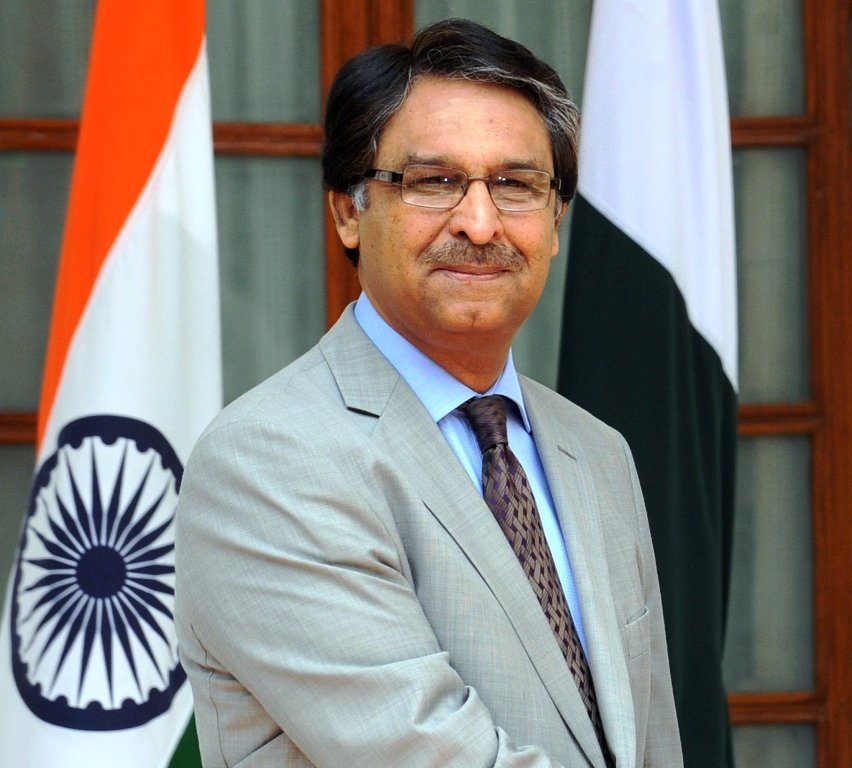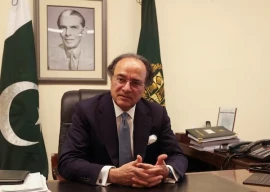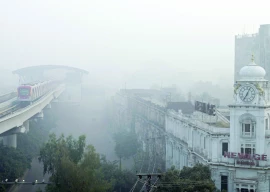
In an exclusive interview with The Washington Times on Friday — his first major on-the-record session with a US news organisation since assuming ambassadorship in Washington — Jilani said in the past year, Indian leaders showed a “kind of arrogance not to engage,” and New Delhi has failed to respond to Pakistan’s efforts to create a joint counterterrorism initiative between the neighbouring countries.
While US “cajoling” may open India to take initiative on the matter, Jilani said, the United States’ attention toward India seems to be having the opposite effect by bolstering New Delhi’s confidence to continue ignoring Islamabad.
“If they don’t feel any pressure from any side, obviously they are a big country and they will say, ‘Why should we engage with a smaller country like Pakistan?’” the ambassador said.
Despite his comments on India, the ambassador pressed that Islamabad’s relations with Washington are stronger today than they have been at any other point since May 2011, when dialogue was halted as a result of the secret raid that killed Osama bin Laden in Abbottabad.
Supports US pullout plan
Asked whether he is satisfied with the administration’s plan, Jilani responded with a “yes” but added that the situation’s delicateness is part of “ongoing discussions” between Islamabad and Washington and that factors on the ground may change the calculus of the withdrawal.
“We have been saying that the drawdown should not be abrupt. We have been saying that it should be based on the ground realities,” Jilani, who cautioned that too rapid a pullout would add pressure to the Pakistani military in the Federally Administered Tribal Areas already engaged in operation to combat terror in the region.
“To give you one example, when we launched these operations in North Waziristan, which we started in June of last year, we were hoping that there should have been a coordinated response from the Afghan side,” the ambassador said. “Now we are witnessing for the last couple of months that there are coordinated responses.”
“We are hitting these groups on our side and the escape route is Afghanistan,” he said. “Previously they would simply disappear in Afghanistan. Now there is a coordinated response from the Afghan side as well, and there is a coordinated response from the U.S. side as well, which is something which is extremely, I think, beneficial to all the sides.”
Tensions with India
Apart from such developments, the ambassador said, leaders in Pakistan are aware that long-term stability in South Asia will depend on easing friction with India. Relations between the two countries have become strained after reports that Russia approved the sale of heavy attack helicopters to Pakistan — a blow to India given that it the country has been a key buyer of Moscow’s arms.
Jilani said “terrorism is as much a concern to Pakistan as it is to India” and that the time is now for the two nations to “engage in a meaningful fashion rather than getting involved in propaganda against each other.” A breakthrough appeared to be developing in May last year, when Prime Minister Nawaz Sharif accepted an invitation to attend Indian Premier Modi’s inauguration ceremony in New Delhi. Calling Sharif’s initiative a “very bold” step, Jilani asserted that the Indian leaders did not reciprocate and never showed up when he invited them to his own inauguration in Islamabad. He added that while in New Delhi, Prime Minister Sharif made a push for diplomacy but was essentially spurned by Indian leaders.
“They were able to agree on the revival of the dialogue process at the level of foreign secretary and for absolutely no rhyme or reason, the foreign secretary dialogue was canceled at the last minute,” the ambassador said. The ambassador concluded that Washington has “played a very important role in the past in bringing the two countries together.”
“We have reason to believe that the U.S. will continue to play that role,” he said.
1731325890-0/trump-(24)1731325890-0-405x300.webp)


1720507435-0/BeFunky-collage-(26)1720507435-0-165x106.webp)




1724926799-0/Untitled-design-(7)1724926799-0-270x192.webp)
1731829534-0/Copy-of-Untitled-(9)1731829534-0-270x192.webp)







COMMENTS (41)
Comments are moderated and generally will be posted if they are on-topic and not abusive.
For more information, please see our Comments FAQ